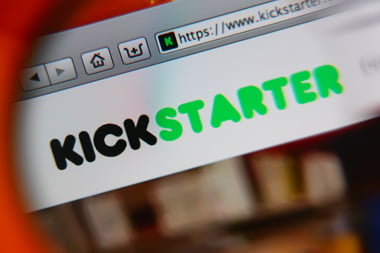WORLD MAP TRACKS CROWDFUNDING SUCCESS

Crowdfunding Centre has launched an interactive map showing the practice’s successes around the world.
Crowdfunding has changed the face of business finance directly funding an estimated 250,000 new ventures globally in the first half of 2014 alone, and now a feature has been created to allow potential backers to find projects across the world from the comfort of their homes.
Similar to Google Earth in its layout, users can zoom in on an interactive map, created by The Crowdfunding Centre (TCFC), at the campaigns occurring in different locations. Investors will have the luxury of being able to keep abreast of the best innovations both locally and abroad, which is likely to only intensify the crowdfunding buzz.
Most often occurring online, crowdfunding is when a campaign or business asks for the public to invest money in its establishment or growth. A target is set by the recipient of how money they would like to raise and investors can send their money through online platforms, usually in exchange for shares in the business.
From aerobics to zoology, a crowdfunding account has probably been set up aiming to raise money to support it. According to TCFC’s report, the highest performing categories based on the number of successful projects are in music, film and art. Meanwhile, the US, Canada and the UK have the largest amount of successful projects in the world, with New York City, Los Angeles and London ranking as the top three locations.
“We’ve been overwhelmed with the interest since we announced the research on London, capital of Crowdfunding” commented Barry James Founder & CEO of TCFC. “People want to know what’s happening in their country and state and in and around their town or city. Especially the types of projects, tech or arts etc, that really interest them. So we thought it’d be really cool to provide the means to do that right now.”
The rise of crowdfunding into the mainstream coincides with much distrust with banks and many small firms struggling to access credit.
Entrepreneur Eric Migicovsky used crowdfunding to push his business to new heights. After failing to gain the support he was hoping for from traditional investors for his Pebble smartwatch project, Migicovsky launched a campaign on Kickstarter with a target of $100,000.
Previously, Migicovsky had struggled to effectively communicate to venture capitalists and other investors what his smart watches actually do, but assisted by the direct and easily-digestible format of online crowdfunding platforms, the Canadian was able not just to market his product well but generate more than $10 million (£6m) from almost 69,000 backers. Famous people have been attracted to the benefits of crowdfunding. Grand Designs star Kevin McCloud is a prime example, as his environmentally-friendly architectural company Hab Housing set a new crowdfunding world record when it raised more than £1.9m last September.
The project aims to build 1,000 sustainable properties each year from 2018 to help ease housing shortages across the country. Despite setting a funding target of a hefty £1m, the campaign was an overwhelming success for McCloud and is one of Crowdcube’s most oversubscribed pitches with 648 investors providing their support.
The popularity of crowdfunding has led to some parody campaigns. In July, entrepreneur Zack “Danger” Brown stunned the internet with his extraordinary “potato salad stunt.” Using US funding platform Kickstarter, Brown managed to raise $44,000 (£27,756) from investors to make a single potato salad, attracting more than 5,370 backers and beating his original goal 4,370 times over. The campaign reflected that amongst all the serious bidding, the public were willing to spend their money on something daft and quirky.
The entrepreneurs behind Scottish craft brewery BrewDog cleverly raised £3m last year by generating capital directly from investors through their own crowdfunding scheme. Titled the Equity for Punks scheme, the brewery allowed customers and “beer fans” to buy up 42,000 shares in the business via its website for a minimum fee of £95.
Following a speech he made on the positive nature of crowdfunding last year, BankToTheFuture.com boss Simon Dixon told us that the practice is changing the way investment is viewed by both entrepreneurs and investors.
“I hope that people left with a few more questions about what happens with their money. People have an impression that their money just sits in a bank account, safe and sound, but actually quite a lot happens to it, and I hope that the session will make people more conscious of where they allocate it.
“Although we are in a challenging economy, innovation is producing opportunities, and we’re a long way from an unrecoverable disaster. Finance is entering a de-institutionalised future based upon people, not big organisations.”
Want to know Simon Dixon’s tips for great leadership? Watch our video interview with him here

Press & Media Enquiries
For more information or to request interviews, contact CMI's Press Team on 020 7421 2705 or email press.office@managers.org.uk


